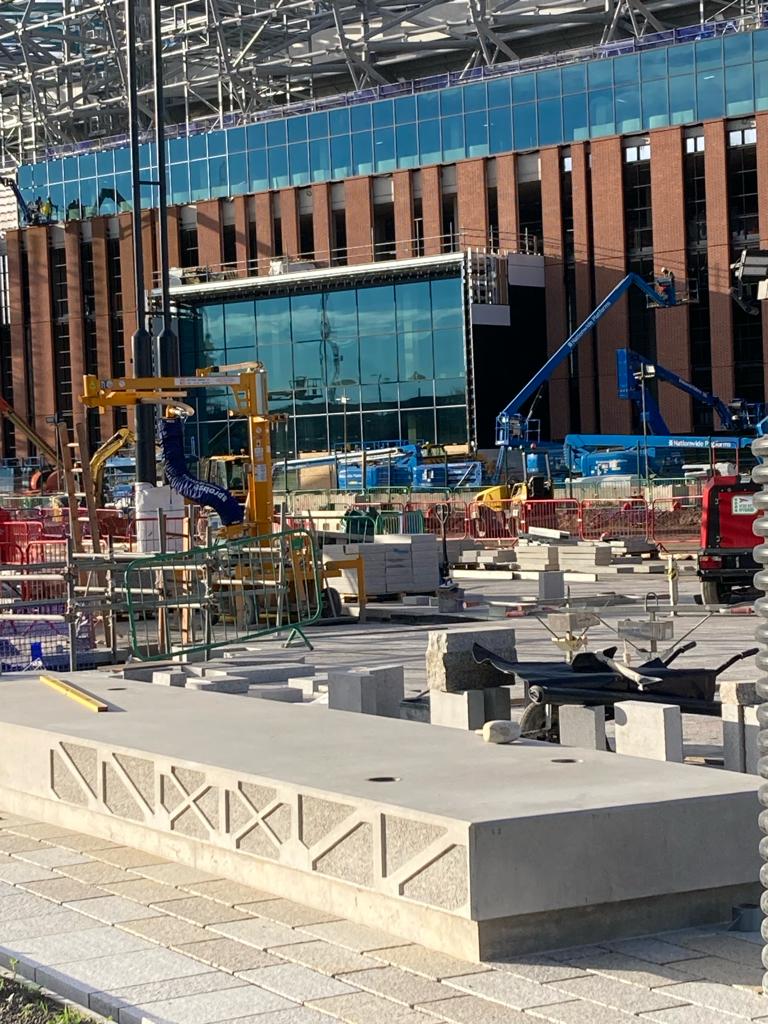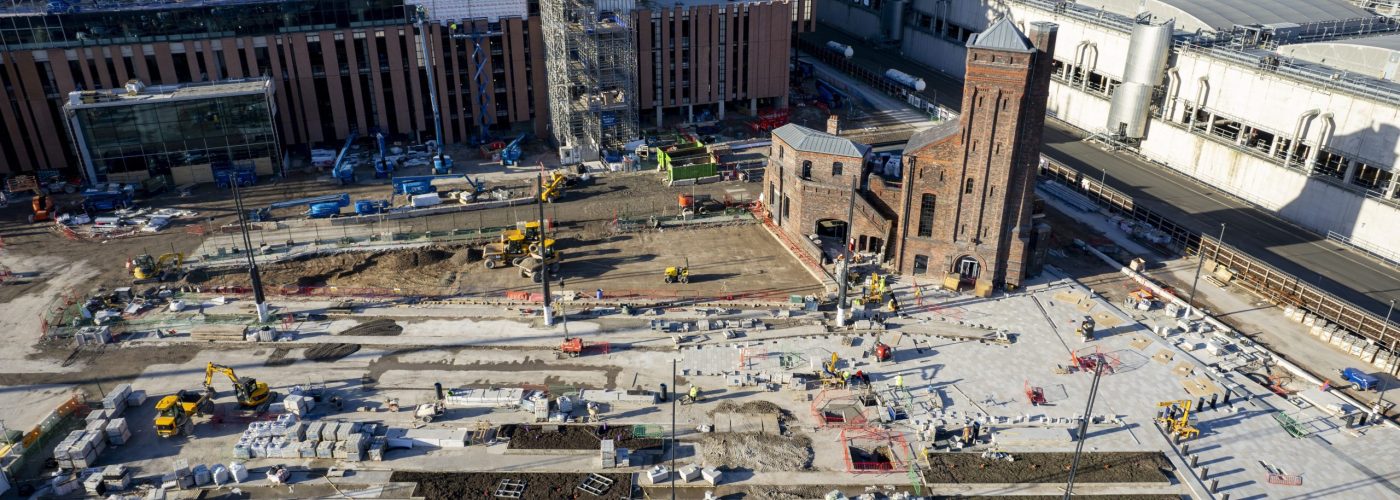The historic Hydraulic Tower and Engine House at Bramley-Moore Dock is set to be handed over to Everton for the next phase of works.
Painstaking work has been undertaken over the past two years to restore the Listed building, dating back to 1883, to its former glory.


And with the external remediation works close to completion, including salvaging and reinstating existing brickwork, extensive re-pointing and the installation of new windows and doors sympathetic to the original design, the next phase of internal works to help breathe new life into the structure will commence next year.
Emily Watson, Assistant Section Manager at Laing O’Rourke, explained: “We’ve have had to undertake a lot of remedial repairs and original make-safe works to get the building into a safe spot.
“There has been some major re-pointing work, some new roofing elements installed and some structural work to make the building safe for the next stage.
“The heritage aspect has always been a careful consideration. Originally, there were a lot of plans that needed to be signed off by Liverpool City Council, planning consultants CBRE and Heritage Project Management.
“We’ve had close relationships throughout, and they have carried out inspections throughout the process too. There have also been Listed Building conditions that we’ve had to sign off and go through just to make sure that everyone was happy with what we were doing to the Grade II Listed structure.
“That includes providing samples and showing them drawings, such as the windows and doors, so they can keep in touch with progress.
“There was another Listed Building condition that meant we had to get sign off on the brickwork, so it could match the original design as much as possible.
“In fact, the bricks from the old station master’s office, which was taken down because it was unstable, were all salvaged. The rebuild was actually done with all the existing brickwork, to keep it exactly the same.”
Complementing the major project to renovate the Hydraulic Tower and Engine House has been an extensive amount of work to restore heritage assets to the site, particularly across the Fan Plaza.
With the help of a £15m grant from Liverpool City Region Combined Authority, historic maritime features such as railway lines, capstans, mooring bollards and cobblestones – a feature during the dock’s heyday, when Liverpool’s docks dominated global trade – have been recorded, tagged and carefully reinstated.
In total, more than 400 heritage assets have been preserved, with any additional items used as either exhibition items, or to be bequeathed to Liverpool City Council or Peel Waters for future development.
And with the Fan Plaza currently being paved, and decorative benches featuring the famous Archibald Leitch truss design installed – the jaw-dropping entrance to the stadium site is gradually coming to fruition.
The main feature, however, is sure to be the imposing Hydraulic Tower, which will even feature the original air raid siren bolted back onto the side of the building, following yet more work to restore it and cover it in a protective coating.
Emily added: “When we first came, the air-raid siren had to be taken off, so we could replicate the original bracket on which it hung.
“We’ve now refitted it onto the building and it has had a special coating, so it can remain there”
“We now have the last ongoing works with the glazing, the louvres and the doors, and we’ve started to layer the roof, then there will just a few final touches, such as flashing and give it one last clean over before it can be handed over.”
Building, Design & Construction Magazine | The Choice of Industry Professionals





